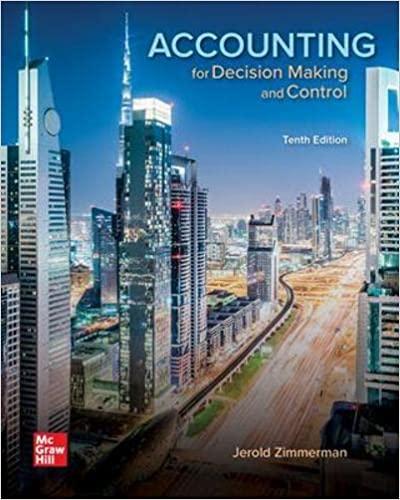Hello,I'm stuck in this case study and i need some help.
Case Study: A manufacturing company is evaluating two options for new equipment to introduce a new product to its suite of goods. The details for each option are provided below: Option 1 $75,000 for equipment with useful life of 7 years and no salvage value. Maintenance costs are expected to be $2,500 per year and increase by 3% in Year 6 and remain at that rate. Materials in Year 1 are estimated to be $20,000 but remain constant at $10,000 per year for the remaining years. Labor is estimated to start at $50,000 in Year 1, increasing by 39% each year after. Revenues are estimated to be: Year 1 Year 2 Year 3 Year 4 Year 5 Year 6 Year 7 50,000 113,000 125,000 125,000 150,000 150,000 Option 2 $50,000 for equipment with useful life of 7 years and a $10,000 salvage value Maintenance costs are expected to be $4,500 per year and increase by 3% in Year 6 and remain at that rate. Materials in Year 1 are estimated to be $25,000 but remain constant at $20,000 per year for the remaining years. Labor is estimated to start at $70,000 in Year 1, increasing by 3% each year after. Revenues are estimated to be: Year 1 Year 2 Year 3 Year 4 Year 5 Year 6 Year 7 75,000 100,000 125,000 155,000 200,000 150,000 The company's required rate of return and cost of capital is 8%. Management has turned to its finance and accounting department to perform analyses and make a recommendation on which option to choose. They have requested that the three main capital budgeting calculations be done: NPV, IRR, and Payback Period for each option. For this assignment, compute all required amounts and explain how the computations were performed. Evaluate the results for each option and explain what the results mean. Based on your analysis, recommend which option the company should pursue. Superior papers will: Perform all calculations correctly. Articulate how the calculations were performed, induding from where values used in the calculations were obtained. Evaluate the results computed and explain the meaning of the results, including why certain measurements are more accurate than others. Recommend which option to pursue, supported by well-thought-out rationale, and considering any other factors that could impact the recommendation







